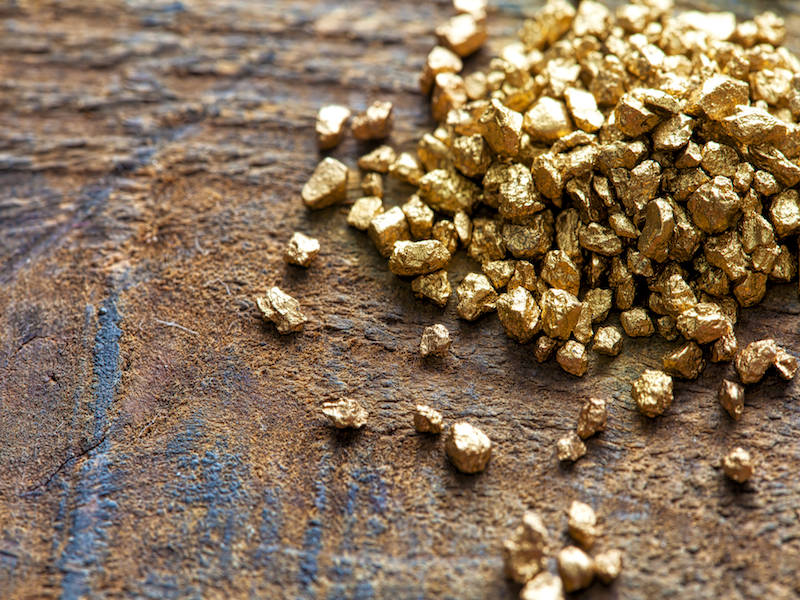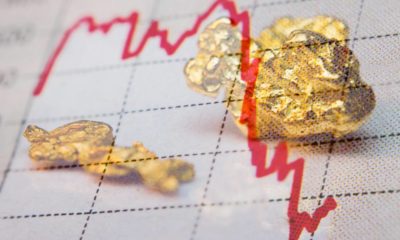Commodities
What Gold Skeptics Won’t Tell You
The so-called gold skeptics often fail to highlight the qualities that make the precious metal a “safe haven asset.”

“All that glitters is not gold.”
So goes the age-old saying. However, gold skeptics take things one step further and question the stability of gold itself.
As observed in a Gold in Mind write-up, “You'll often hear that gold should be ignored because it is just another fad currently hyped by brokers, just like the dot-com shares were before 2000. Other skeptics say that the gold price is just too high. These claims make sense if you don't give them a second thought. Wise investors, however, will do and discover they are far from true.”
In a paper published on ZeroHedge.com, Phoenix Capital Research also observed, “It's odd for an asset class that less than 1% of investors actually own, ‘reporters' and ‘analysts' sure spend an awful lot of trashing it. How come they don’t spend an equal amount of time trashing uranium or other under-owned asset? Why spend so much time focusing on an asset that so few people even own?”
Phoenix Capital Research then went on to cite three possible reasons why many so-called experts and analysts “trash” gold. They are the following:
1. Gold and its performance disprove the assumption that you can generate wealth by printing money.
2. Gold doesn't benefit banks, as you have the option to store it in your own safe or another secure storage facility.
3. Gold doesn’t generate any immediate revenue for financial institutions.
Consequently, that explains why skeptics often neglect to highlight these three important things about gold.
1. It's probably the most stable asset.
In a CNBC feature, options trader Dennis Davitt of Harvest Volatility Advisors stated, “One of the assets that I never liked for my whole trading career was gold. But if you have to pay money to store your assets somewhere, I'd rather store a hard asset like gold than something like paper currency.”
There's 4 reasons gold is set to skyrocket —> Find out more here. https://t.co/Dtc4D1DGHy pic.twitter.com/O3WAjLVv8m
— The Capitalist (@Capitalist_Site) May 5, 2016
Davitt went on to say that gold “is looking even more attractive in the face of negative interest rates, especially as Treasury yields tumble.” He explained that “under ultra-low or negative interest rates, holding cash in a bank should cost investors more money.” Although, technically, it still costs money to store gold, Davitt reiterated that “it would be a better investment than cash in these circumstances.”
In any case, USA Gold pointed out, “Storing gold is not as expensive as people may think. The smallest safe deposit box is around $30 per year, and can hold hundreds-of-thousands of dollars worth of gold. A good quality home safe is a one-time cost, generally less than $1,000. Even if you opt to store at our exchange approved depository, the cost for fully allocated segregated storage can be as little as 1% per year.”
2. It's the real money.
Keith Weiner — in his Forbes article, “The Gold Standard for skeptics” — stated, “The dollar may circulate, but it's not money. It's just a small slice of the government’s debt. It’s an I.O.U., a promise to pay, though most have long forgotten what the government once paid — gold.”
Weiner went on to say, “A measure of value is a better way of defining money than a medium of exchange.” That being the case, he further stated, “Gold is, by far, the best measure of value. Nothing else comes close, certainly not the dollar. If you defend the dollar simply because you live in America, imagine the debate in Argentina. No one there defends the peso as a better unit of measure than gold.”
3. It's an asset that you can actually see and even wear.
In his article, “5 best bets for buying gold,” Geoffrey Michael pointed out, “Jewelry allows you to invest in gold and have the enjoyment of wearing it. It can also be combined with other precious gems and metals to enhance the overall value and appearance. Jewelry can be passed down to the next generation, as a family heirloom, adding sentimental value beyond that of the piece itself.”
[seabridge]
Michael noted, though, that jewelry “is not the best option if it's strictly an investment.” He reasoned that this is because “the price will usually far exceed the meltdown value.”
However, you can invest in collector's pieces whose value may increase over time due to the workmanship involved. Moreover, Michael added, “jewelry is covered by most homeowner insurance policies, so that's an advantage, should it be lost or stolen.”
Aside from jewelry, you could also go for limited edition gold coins and gold art pieces.
The fact remains, though, that gold is one of the most complicated assets to price. Still, there's no denying that in times of economic upheavals, it remains a “safe haven.”
A FoxNews.com feature asserted: “Gold is considered a safe-haven asset. Throughout history, it has been viewed as a store of value. It is essentially a currency that cannot be manipulated by the interest rate policies of any one government, and has traditionally been used as a hedge against inflation.”
No matter what skeptics say, the value of gold remains.















